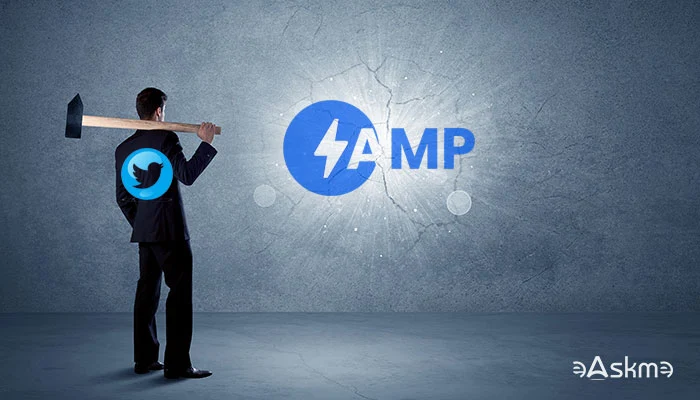Does your website have AMP pages? Do you use AMP optimization to influence organic ranking? Can AMP influence rankings?
These are the questions that every web admin asks before using or dropping AMP. AMP is there to improve the overall impact of a website or blog.
It improves load time and makes the website responsive and user-friendly.
 |
| Is AMP a Google Search Ranking Factor or Not?: eAskme |
AMP, or Accelerated Mobile Pages, is an HTML technology developed by Google to optimize desktop sites for mobile devices. Because it is a Google product, it is believed that AMP impacts the search ranking.
While web admins are using AMP to improve website speed, it is also giving the impression that it can impact search ranking.
Let’s understand everything about AMP and its impact on search.
AMP:
Google launched AMP or Accelerated Mobile Pages HTML framework to make websites mobile-friendly. Webmasters are also using it because it is user-friendly or it is a Google product.
Google has clearly said that AMP does not impact search ranking. Yet there are reasons why many SEOs believe otherwise.
AMP accelerates website response time on mobile devices. It directly impacts the user experience. And user experience is what matters the most. WordPress AMP plugins are easily convert a website into AMP pages.
Claim: AMP is a Google Search Ranking Factor
Google launched AMP in 2018. Since then, SEOs believed that it is necessary for better search ranking as it comes from Google.
But is it so?
SEOs always believe that every Google product has an impact on search ranking. The reason behind this is the belief that Google favors its products over others.
However, Google has created AMP to improve website load speed in mobile devices. Google can make it a ranking factor if they want it.
Google has already debunked this myth. AMP does not impact search results, but it does not mean that technology is irrelevant.
Evidence: AMP Is not a Google Search Ranking Factor
Google’s John Muller already said that AMP is not part of the ranking system. Google’s SEO document also explains that AMP is not a ranking factor. Google treats every page the same way regardless of its AMP status.
You must know that page speed is the part of user experience that is essential for organic ranking.
But you can achieve that without using AMP technology.
Fall of AMP:
AMP technology has been replaced mainly by Core Web Vitals even without officially mentioning it. While AMP does not directly impact search ranking, Core Web Vitals are part of the ranking factors.
Google has retired the amp icon, and SEOs are happy with Core Web Vitals technology.
Rise of Core Web Vitals:
Google has made Core Web Vitals the ranking factor in 2021. AMP can help bloggers achieve better CWV scores. But Core Web Vitals are asking more than the AMP pages can do.
Some tools that help web admins achieve better Core Web Vitals scores without AMP pages.
Will AMP Rise Again?
AMP is going towards its downfall. Google News is bypassing AMP URLs. X (Formerly Twitter) has also dropped support for AMP pages. It is easy to say that AMP is going away.
This is not the first time a Google product has gone downhill.
Now the question is, should you move your AMP pages to non-amp?
It depends upon the result. If you are happy with your current ranking, then you may not consider moving to non-amp.
And, if you want, then stop using AMP on your website.
Conclusion: AMP is a Google Search Ranking Factor
AMP is not a Google search ranking factor. There is nothing new in AMP, and web admins are also removing it from their websites.
AMP is not giving any advantage, and Core Web Vitals are doing better.
Still have any question, do share via comments.
Share it with your friends and family.
Don't forget to join the eAskme newsletter to stay tuned with us.
Other handpicked guides for you;











